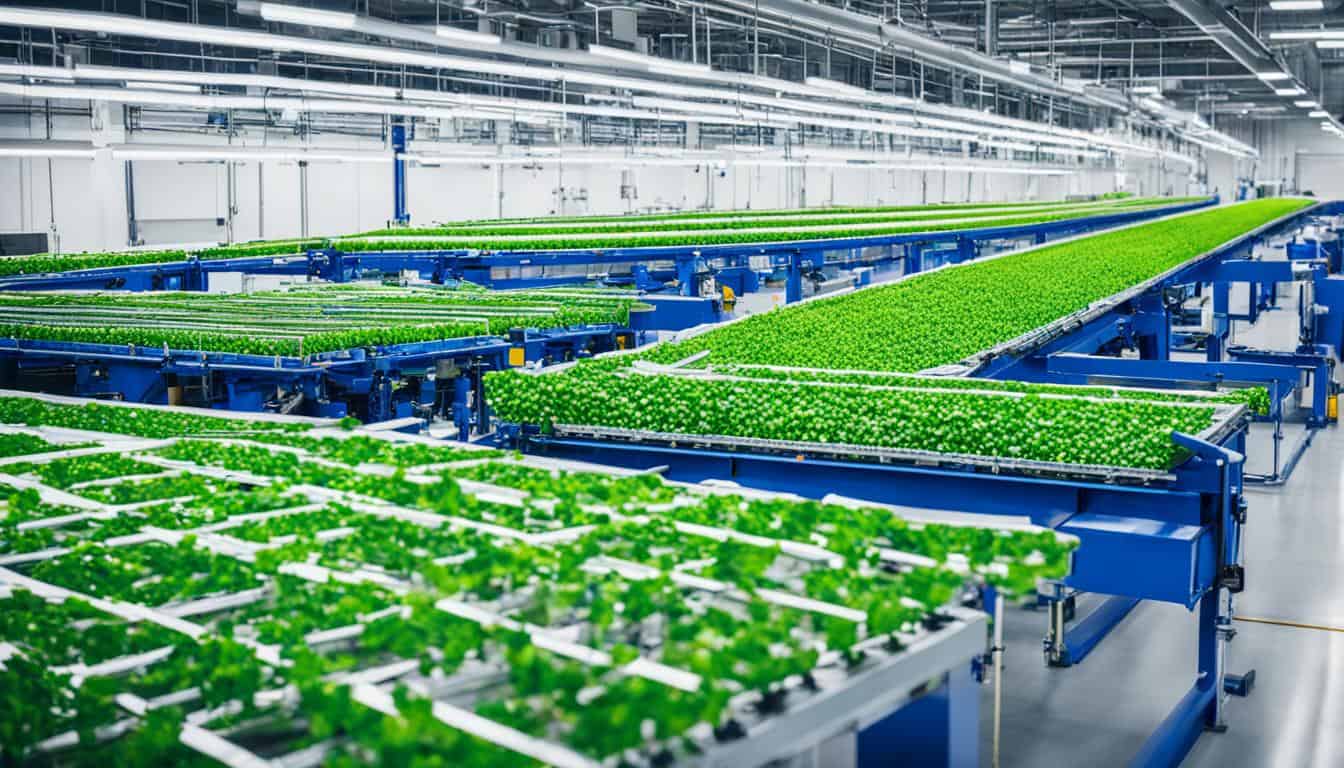As I delve into the world of sustainability, I find that it’s not just about environmental stewardship but is also much about upholding the dignity and well-being of employees. In my exploration, I’ve come to understand that sustainable labor practices are fundamental to eco-friendly companies. They incorporate fair wages, safe working environments, and boundless opportunities for employee growth.
These companies are hell-bent on minimizing waste and the use of non-renewables, all while fostering a culture of respect where labor rights are revered. Moreover, setting such examples doesn’t negate a company’s legal and moral obligations but enhances its commitment towards environmental responsibility.
Take for example the P.A.C.E program by Gap. It’s a glowing representation of a company dedicating its resources to upskill its workforce, thus affirming the importance of sustainable labor initiatives in procurement and business operations. The blend of ethical, responsible, and ongoing success that aligns with present needs and future prospects beautifully underscores the need for labor rights to be at the heart of corporate sustainability.
Key Takeaways
- Eco-friendly companies are committing not just to environmental responsibility but also to enhancing labor rights.
- Sustainable business practices foster a work environment that ensures fair wages, safety, and opportunities for growth.
- Lawful and moral obligations align perfectly with environmental and social sustainability in such companies.
- The P.A.C.E program by Gap pivots the importance of sustainable labor initiatives in business operations.
- At the heart of corporate sustainability, labor rights serve as an ethical, responsible, and sustainable pillar.
The Growing Imperative for Sustainable Business Practices
As more and more businesses are gaining an understanding of the intricate dynamics of sustainability, corporate actions are increasingly being shaped by innovative and responsible practices. And this isn’t just about being environmentally conscious, but about being able to respond and adapt to changing market and consumer demands. To truly mark the shift towards sustainability, businesses need to assimilate practices that enhance not only the environmental but also the social and economic aspects of their operations.
Defining Sustainability and Its Impact on the Business World
Sustainability in a business context is a far-reaching term, representing more than just a nod towards environmental conservation. It’s a holistic approach that extends to every facet of business operations, incorporating ecological preservation efforts, consideration for societal demands, and careful management of economic factors to ensure longevity. With sustainability gaining a firm foothold in the corporate sphere, it’s not just about ‘going green’ anymore and limiting the focus to singular products or processes. True sustainability casts a wider net, considering the entire production lifecycle and its manifold impacts.
The Triple Bottom Line: People, Planet, and Profit
Often cited as the foundation of corporate sustainability, the triple bottom line concept introduces a broader perspective on business success. Businesses are no longer solely measured by their profit margins; instead, the consideration extends to their operations’ social and environmental impact. This holistic approach balances the needs of ‘People’ (ensuring ethical labour practices), ‘Planet’ (minimizing environmental impact), and ‘Profit’ (maintaining economic viability). Companies that manage to strike this balance and demonstrate their commitment to all three fronts inevitably enhance their corporate image and gain a competitive edge.
Real-World Examples of Sustainable Business Operations
The business world is already aglow with examples of companies making noteworthy strides towards sustainability. Businesses like Patagonia, Interface, and IKEA have not only ingrained sustainability in their operations but are also using it as a lever for innovation. For instance, Interface has successfully managed to recycle fishing nets into new nylon yarn for carpets, thereby creating a closed-loop production cycle.
Such examples encourage other businesses to embrace sustainability, demonstrating that it’s not just profitable but also feasible. Real-world examples truly highlight the viability and benefits of sustainable business operations, showcasing significant energy and cost savings, an increase in marketability among eco-conscious consumers, and potential tax incentives.
As the world advances, sustainable practices will become paramount to the success of any business. Companies that recognize this and adapt accordingly will find themselves ahead of the curve, leading in their respective industries while operating in harmony with the environment and society. And the journey to sustainability, as seen from these examples, is not a sprint, but a marathon, requiring consistent efforts and commitment towards a more sustainable future.
Deciphering the Green Transition in Manufacturing
The green transition within manufacturing marks a significant paradigm shift from traditional production methods to ones that are environmentally and socially cognizant. The journey towards manufacturing sustainability has seen companies making enormous strides in reducing energy usage through efficiency and adoption of renewable sources such as solar and wind.
Alongside improved energy management, the focus has also expanded to include water stewardship and recycling programs. These eco-friendly manufacturing practices not only benefit our planet but also lead to substantial cost savings and operational advantages. The initiatives set forth by these companies, like the employment of energy-efficient machinery, is indicative of their substantial commitment to sustainable growth. This dedication to sustainability, can be observed in their corporate responsibility initiatives and ESG programs.
Notably, these concerted efforts demonstrate that sustainable manufacturing is not an abstract concept for the future, but a reality that many entities are already adopting. This progress reflects a deep-seated commitment to shift towards sustainable models that align with both environmental preservation and economic prosperity.
| Sustainable Initiatives | Benefits |
|---|---|
| Energy-efficient Machinery | Reduced energy usage and cost savings |
| Adoption of Renewable Energy Sources | Lower carbon footprint and sustainable energy supply |
| Improved Water Stewardship | Conservation of water resources |
| Enhanced Recycling Programs | Waste reduction and reutilization of resources |
Establishing Environmental Accountability in the Workplace
In today’s corporate world, establishing environmental accountability extends beyond regulatory compliance and involves a steadfast commitment to reduce carbon footprints. This involves the strategic incorporation of renewable energy and sustainable resource usage within businesses. Companies thriving in this aspect don’t just focus on reducing emissions, but inspire their entire supply chain ecosystem to embrace similar commitments.
Reduction of Carbon Emissions and Promotion of Renewable Energy
Among leading corporate champions in the space of environmental responsibility, we witness remarkable initiatives. For example, Orsted’s transformation from a heavy dependence on coal to utilizing wind energy is a testament to their commitment towards renewable energy. Similarly, JetBlue’s pledge towards carbon neutrality signifies their efforts in reducing carbon emissions, thereby promoting cleaner air and healthier environments.
Implementing Sustainable Resource Use and Waste Reduction Strategies
Alongside initiatives aimed at carbon reduction and renewable energy, successful green corporations design strategies targeting sustainable resource use and waste reduction. By closely monitoring and optimizing resource utilization, these companies effectively mitigate their environmental impact while also reaping significant economic benefits. The result is an innovative, efficient work setting geared towards waste minimization.
Evaluating the Eco-Friendly Evolution of Corporate Infrastructures
Examining corporate infrastructures, one can see transformative changes that signal the rise of green practices. The force behind this ongoing shift is the globally recognized need for sustainability and environmental conservation. The resultant eco-conscious corporate infrastructures not only demonstrate reduced environmental impact, but are also underlined by resource optimization, leading to heightened productivity and economic growth.
It’s clear that effective adoption of environmentally friendly practices enable organizations to succeed in their journey towards environmental accountability. The story of transitioning towards renewable energy sources, reducing carbon emissions, and stringent resource use not only exemplifies responsible corporate conduct but also illuminates a path for future enterprises to follow.
The Role of Labor Rights in Eco-Friendly Companies

In the heart of eco-friendly companies, one finds a profound respect and endorsement for labor rights. More than an element of corporate identity, it’s a statement unto the world—an assertion that these companies embrace ethical labor practices, stand for employee well-being, and are advocates for sustainable labor practices.
- The commitment to safe and nurturing work environments.
- Investment in employees’ skills and personal development.
- Adopting policies that promote fair wages, safety, and equality.
One sterling example that encapsulates these ideas is the P.A.C.E program initiated by Gap. They discovered the infinite potential of their female workers, investing in their growth and development. The results? The formation of a more skilled, motivated, and efficient workforce.
Responsible business practices are the cornerstones of eco-friendly entities. Through comprehensive labor rights implementation and diligent adherence to moral and ethical ethos, businesses can ensure employee satisfaction and retention—key factors that fuel long-term business success.
Advancing Social Responsibility through Fair Labor Practices
Understanding the essence of fair labor practices and their role in advancing social responsibility is pivotal for eco-friendly businesses. Synonymous with justice and equality, these practices become the foundation of a firm’s reputation and competitiveness. Echoing this sentiment, numerous ethical fashion brands from the UK have led by example, integrating responsible purchasing and fairness in supplier contracts into their operations.
Ensuring Equity and Safety in the Sustainable Workplace
A core component of fair labor practices is the provision of an equitable and safe workplace. This involves stringent health and safety measures, non-discriminatory policies, and accessible grievance mechanisms. By doing so, eco-friendly businesses reaffirm their commitment to employee safety and foster an environment of inclusion and fairness.
Supporting Employees with Fair Wages and Benefits
Alongside fairness in the workplace, adequate compensation, in the form of fair wages and comprehensive benefits, formulates another crucial aspect of fair labor. These benefits often include healthcare plans, pensions, and other valuable perks. Seeing such perks as investments rather than expenses highlights the prioritization of employee well-being in the social responsibility spectrum.
| Company | Benefit |
|---|---|
| Patagonia | Environmentally-friendly practices |
| Tom’s of Maine | Employee volunteer benefits |
| Eileen Fisher | Transparent supply chains |
| Burts Bees | Low environmental impact |
Encouraging Employee Engagement and Development Initiatives
Companies that prioritize their employees’ career growth and satisfaction tend to possess a loyal and engaged workforce. Employee engagement strategies, from training programs to personal development initiatives, empower employees by offering avenues for professional growth and fostering a culture conducive to innovation and progress.
The significance of fair labor practices in upholding social responsibility transcends pure financials and resonates on a human level. By rooting the principles of equity, safety, fair remuneration, and employee development at the heart of their operations, eco-friendly businesses cultivate a climate of trust, respect, and mutual profitability — aligning both to the company’s vision and the larger mandate of social and environmental sustainability.
Economic Advantages of Sustainable Labor Initiatives
As an ardent observer of evolving business strategies, I’ve come to appreciate the economic advantages invigorating companies that have enjoined sustainable labor initiatives. An in-depth examination of eco-friendly corporations unveils a common thread – they invest sincerely in their workforce, creating a vibrant work atmosphere brimming with contentment and high employee productivity.
Such devotion to ethical business practices is not unrequited. On the contrary, it’s echoed by the market, beckoning consumer attraction and stimulating investor interest. This reciprocal synergy gives birth to a virtuous cycle of continuous improvement and profitability.
Adopting sustainable labor practices could be the most profitable decision a business makes. – Anonymous Eco-Minded Business Visionary
Driving Change: The Power of Procurement in Activating Labor Rights
Procurement, a central function within numerous organizations, holds a pivotal role in advancing labor rights and sustainability standards in global supply chains. With the authority to dictate the conditions and standards imposed on suppliers, procurement can significantly influence labor rights practices across the board. In this context, procurement can prove to be a potent agent of change.
Setting Sustainability Standards in Supply Chain Relationships
By setting robust sustainability criteria and regularly monitoring suppliers’ performance against these standards, procurement can indeed play a transformative role. When such standards encompass labor rights concerns, compliance can also guarantee better labor conditions in companies down the supply chain. It, therefore, becomes essential for procurement professionals to imbibe principles of ethical procurement policies within their operational framework leading to a broader realization of fundamental labor rights.
Ethical Procurement Policies and Their Effects on Labor Rights
On one hand, ethical procurement policies lay the groundwork for the greater stringent enforcement of labor rights. On the other hand, they compel suppliers to adapt to such principles if they wish to continue their business relationships. This dual action amplifies the influence of procurement – driving labor rights activation, not just within the company’s immediate domain, but also within the larger external environments that they operate.
Innovating with Supplier Diversity and Responsible Sourcing
Procurement can bring innovation to the table by adopting responsible sourcing strategies and incorporating supplier diversity. Advocating for supplier diversity implies supporting businesses owned and run by socially disadvantaged individuals or communities, thus directly counteracting structural inequalities. This advocacy helps create a more equitable and accountable business ecosystem impacting labor rights positively.
In conclusion, the function of procurement extends beyond mere sourcing of products and services, particularly in eco-friendly companies committed to responsible business practices. It can be a key catalyst in driving labor rights activation, enforcing sustainability standards, and promoting ethical procurement policies.
Cultivating a Culture of Environmental Responsibility and Human Rights

In our grand pursuit of a sustainable future, fostering a culture that intertwines environmental responsibility with human rights is central to achieving sustainability within eco-friendly companies. A commitment to sustainability must be woven into the very fabric of an organization’s corporate culture, driving ethical business engagements, responsible leadership, and the firm’s ESG performance.
There are renowned corporations setting a precedent for the future sustainability journey of the corporate sector. For instance, Schneider Electric and Neste are making notable strides in developing technologies and refining methods that underscore a commitment to reduced emissions and alternative sustainable materials. On the other hand, Orsted and JetBlue pride themselves on their initiatives in wind energy and carbon neutrality.
Their endeavors affirm the impact of corporations when they boldly step up to their ethical commitments. As leaders in their respective sectors, these companies show us the potential of what a commitment to sustainability can achieve, not just environmentally but socially and economically as well.
“Companies that consider the implications of their ESG performance find their companies prosper financially and also gain a reputation for responsible leadership.”
Let’s take a closer look at how these companies integrate environmental responsibility and human rights into their operations.
| Company | Environmental Responsibility | Human Rights Initiatives |
|---|---|---|
| Schneider Electric | Developing energy-efficient systems to reduce emissions | Ensuring fair labor practices and equitable opportunities within the organization |
| Neste | Refining methods for the production of sustainable alternative materials | Commitment to employee welfare and a safe working environment |
| Orsted | Pioneering initiatives in wind energy | Advancing social justice through fair trade and labor rights |
| JetBlue | Commitment to carbon neutrality | Championing equal opportunities and diversity in the workplace |
Companies that lead with environmental responsibility and human rights foster a workplace culture conducive to ethical business practices and responsible leadership. Their journey towards sustainability sends a strong message to other organizations and encourages them to embark on their own sustainable journey.
Conclusion on Labor Rights in Eco-friendly Companies
As we all stand witness to the unfolding green transition, observing everyday business operations progressively assimilate into sustainability programs is affirming. These transitions articulate a purposeful future; a future where labor rights and environmental protection coalesce into an indelible bond.
Companies advocating for ecological consciousness showcase a heightened affinity towards social responsibility. These eco-friendly hubs, while actively mitigating their environmental footprint, simultaneously lay the foundation to model long-term sustainability for the corporate world. Their actions today echo a hopeful chorus for a sustainable future, reflecting the positive synergies between environmental and socio-economic aspects.
As companies continue to invest in advancing labor rights, they substantiate the belief that sustainable business practices invigorate not just environmental and social outcomes, but also economic effectiveness. The vision showcased by these pioneers directs us towards a sustainable future. A future where today’s practices lead to tomorrow’s prosperity, and concurrently empower the workforce fuelling such prosperity.
FAQ on Future of Work
Q: How are esg factors considered by sustainable companies to advance labor rights?
A: ESG (Environmental, Social, and Governance) factors play a vital role in sustainable companies. These companies understand that ensuring labor rights is just as crucial as reducing their environmental impact. They adopt best practices, encourage transparency, and suppress any form of child labor. They use the respondent system to take into account employees’ opinions, thereby fostering a work environment where employees feel respected and valued.
Q: How does embracing sustainability pave the way for better labor rights?
A: When companies embrace sustainability, it presents an opportunity to reassess their labor policies. It not only helps companies meet their climate goals but also uplifts social standards. They take steps to suppress child labor, and other unfair labor practices, creating an environment where employees can safely and positively contribute to the company and society.
Q: According to Deloitte’s survey, how are job seekers taking sustainability into account while choosing companies?
A: According to a survey by Deloitte, job seekers are increasingly looking at the sustainability initiatives of companies during their job hunt. More than 70% of respondents indicated that they have accepted a lower salary to work for a company with strong sustainability credentials. This shows that job seekers are likely to apply to environmentally sustainable companies over others.
Q: How are employee resource groups (ERGs) utilized in sustainable companies?
A: In sustainable companies, Employee Resource Groups (ERGs) play a significant role in advancing labor rights. ERGs promote inclusivity and diversity in the workplace, which are key elements of corporate social responsibility. They provide platforms for employee engagement, personal development, and collaboration, making employees feel valued and included.
Q: How has a shift towards sustainability affected employees who have changed jobs in the past year?
A: The shift towards sustainability has significantly influenced employees who have changed jobs in the past year. According to the Institute for Business Value, many of these employees have chosen to work for companies that prioritize sustainability and labor rights. They are ready to accept a lower salary to work for such companies as it aligns with their values and contributes to their job satisfaction.
Q: How does supporting companies with sustainable values impact the environment?
A: Supporting companies with sustainable values has a positive indirect impact on the environment. These companies aim to reduce their environmental footprint, contributing to the global climate goals. Additionally, by advancing labor rights, they foster a work culture that values sustainability, which can have a ripple effect, encouraging other companies and individuals to also adopt sustainable practices.
Q: How do sustainable companies adopt best practices to advance labor rights?
A: Sustainable companies redefine their labor policies to adopt practices that protect and advance labor rights. They suppress all forms of child labor, provide fair compensation, ensure safe and healthy working conditions, and encourage open communication. They also invest in their employees through training and development programs, creating a workplace where employees feel valued and motivated.
Q: How do sustainable companies ensure employees feel valued?
A: To ensure employees feel valued, sustainable companies create a fair and inclusive work environment. They involve employees in decision-making, listen to their ideas, and take their well-being into account. They also offer benefits like flexible work schedules, wellness programs, and development opportunities. They use Employee Resource Groups (ERGs) to promote an inclusive and diverse work culture.
Q: How has the concept of corporate social responsibility (CSR) helped companies pave the way for better labor rights?
A: The concept of CSR has guided companies to take an active role in improving society. It has helped companies understand that their duties go beyond mere profit-making, which includes respecting and advancing labor rights. As a result, many companies are redefining their labor policies and adopting practices that ensure fair treatment, equality, and advancement in the workplace.
Q: Can embracing sustainability help companies attract and retain top talent?
A: Yes, embracing sustainability can indeed help companies attract and retain top talent. Candidates today are not just looking for a paycheck; they also want to work for companies that align with their values. According to a Deloitte survey, job seekers are likely to apply to companies that take sustainability into account, even if it means accepting a lower salary. Therefore, incorporating sustainability can become a competitive asset to attract and retain talent.




Leave a Reply